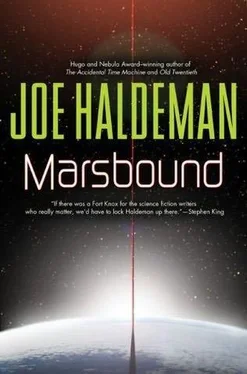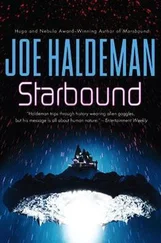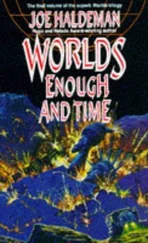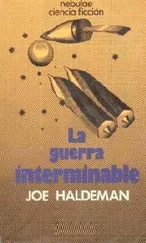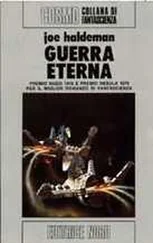I couldn’t get warm. Fortunately, one of the things I delivered was a bundle of blankets for “Sleeping A.” I was A-8, so after we finished, I liberated one of the blankets and wrapped it around myself.
Saying good-bye to Dr. Porter was more emotional than I would have thought. Tears that acted reasonably, rolling down your cheeks. She hugged me, and whispered, “Take care of Card. You’ll love him soon enough.”
She went back to the carrier, and the air lock closed. Paul warned us we all had thirty minutes to use the toilet, then we’d be strapped in for almost two hours. I didn’t really need to go, but might as well be prudent, and I was mildly curious about what I’d be putting up with for the next six months. I got at the end of the line and asked my reader for a random story. It was an amusing thing from France a million years ago, about a necklace.
The zero-gee toilet was the same as the carrier’s, but without the little camera. I didn’t miss it; nor did I miss the target.
We strapped into our seats in the lander and waited for twenty minutes or so. Then there was a little “clank” sound, the cable letting go of us, and we were in zero gee, flung away.
Most of the speed we needed for getting to Mars was “free”—when we left the high orbit at the end of the Space Elevator, we were like a stone thrown from an old-fashioned sling, or a bit of mud flung from a bicycle tire. Two weeks of relatively slow crawling to the top built up into one big boost, from the orbit of Earth to the orbit of Mars.
We had to stay strapped in because there would be course corrections, all automatic. The ship studied our progress, then pointed in different directions and made small bursts of thrust.
It was only a little more than an hour later when Paul gave us the all-clear to go explore the ship and get a bite to eat.
Compared to the Space Elevator carrier, it was huge. From the lander, you go into the zero-gee room, which was about three times the size of our living room at home. The circular wall was all storage lockers that opened with the touch of a recessed button, no handles sticking out to snag you.
You climb backward down the ladder, in a four-foot-wide tunnel, to get to the living areas, A or B. Both pods were laid out the same. The first level, for sleeping, had the least gravity, close to what we’d have on Mars. Then there was the work/study area, basically one continuous desk around the wall, with moveable partitions and maybe twenty viewscreens. They were set up as fake windows, like the carrier’s “default mode”—thankfully not spinning around six times a minute.
The bottom level was the galley and recreation area. I felt heavy there, after all the zero gee, but it was only about half Earth’s gravity, or 1.7 times what we’d have on Mars, the next five years.
It had a stationary bicycle and a rowing machine with sign-up rosters. You were supposed to do an hour a day on them. I took 7 A.M., since 8 and 9 were already spoken for.
Elspeth and Davina found me down there, and we had the first of a couple of hundred lunches aboard the good ship John Carter . A tolerable chicken-salad sandwich with hot peas and carrots. Card showed up and had the same. He made a face at the vegetables but ate them. We’d been warned to eat everything in front of us. The ship wasn’t carrying snacks. If you got hungry between meals, you’d just have to be hungry. (I suspected we’d find ways around that.)
It was a lot more roomy than you’d expect a spaceship to be, which was a provision for disaster. If something went wrong, and one of the pods became uninhabitable, all twenty-six of us could move into the other pod. Then if something happened to it , I guess we could all move into the zero-gee room and the lander. I don’t know what we’d eat, though. Each other. (“It’s your turn now, Card. Be a good boy and take your pill.”)
I sat down at one of the study stations and typed in my name and gave it a thumbprint. I had a few letters from friends and a big one from the University of Maryland. That was my “orientation package,” though actual classes wouldn’t start for another week.
It was very handy—advice about where to get a parking sticker, dormitory hours, location of emergency phones and all. More useful was a list of my class hours and their virtual-reality program numbers, so I could be in class after a fashion.
It was a little more complicated for me than for the kids actually on campus. Up in the right-hand corner of the screen were UT, Universal Time, and TL, time lag. The time lag now, the time it took for a signal to get from me to the classroom, was only 0.27 of a second. By the time we got to Mars, it could be as much as twenty-five minutes (or as little as seven, depending on the distance between the planets). So if I asked the professor a question at what was to me the beginning of the fifty-minute class, he’d already be halfway through, Earth time. He’d get my question while everybody else was packing up their books, and his answer would get to me twenty-five minutes after class was over.
Actually, it would be even more complicated once we were on Mars Time, since the day is forty minutes longer. But I didn’t have to worry about that until we got halfway there, and switched.
Ship time was Universal Time, until we hit the halfway point, which put us on the same schedule as people living just upriver from London, which I guess had made sense when they were planning things on Earth. Why not go straight to Mars Time? Whatever, I got a few pages into the college catalog, and my body said sleep, even if it was only two, 1400, to the folks in Merrie Olde Englande. I dragged my blanket up to the light-gee sleeping floor and wrapped myself up in it, and slept till the dinner bell.
The first week or two we were under way, I was asleep as much as awake, or more, which got Mother worried. She had me go talk to Dr. Jefferson, who asked me whether I felt depressed, and I’m afraid my response was a little loud and emotional. I mean, no, I wasn’t depressed; I was just imprisoned and hurtling off to some uncertain future, probably to die before I was legally an adult, and I asked him aren’t you depressed?
He smiled and nodded (maybe not “yes”), and gave me a light hug, the big black bear, which might have made me slightly telepathic. It wasn’t so much the abstract danger. I was really upset at not being able to concentrate, falling asleep over my college homework… but what was that, compared to being the only doctor aboard, waiting for someone to need an appendix out, or even a brain tumor? Or just pulling a tooth or looking up someone’s ass with an ass-o-scope. He only had to take care of twenty-six of us, but anything could happen, and he was responsible for our lives or deaths.
He probably had a suitcase full of pills for depression, and said he’d give me some if I needed them, but first he wanted me to keep a personal record for a week—how many hours asleep and awake; when I lost my temper or felt like crying. After a week, we would talk about it.
He said he was no psychologist, but that seemed to work, maybe because I wanted to impress him, or reassure him. After a week, I was sleeping eight hours—counting the hours lying with my eyes closed listening to music—and pretty much awake the rest of the time. And I was undramatically less sure that space wanted to kill us all, especially me.
All of us between ten and twenty had “jobs,” which is to say chores. Mine was easy, cleaning the galley after meals, a lot less mess than the kitchen at home, with nothing actually cooked. Card had to clean the shower, which I suppose enriched his fantasy life.
Everybody spent thirty minutes a day learning about Mars. That was mostly boring reinforcement of stuff we already knew, or should have known. I tolerated the half hour until regular classes started, and really just sort of thought about other things while it droned on. Nobody was testing me on Mars facts, but I had exams in history and math and philosophy.
Читать дальше
